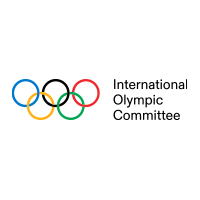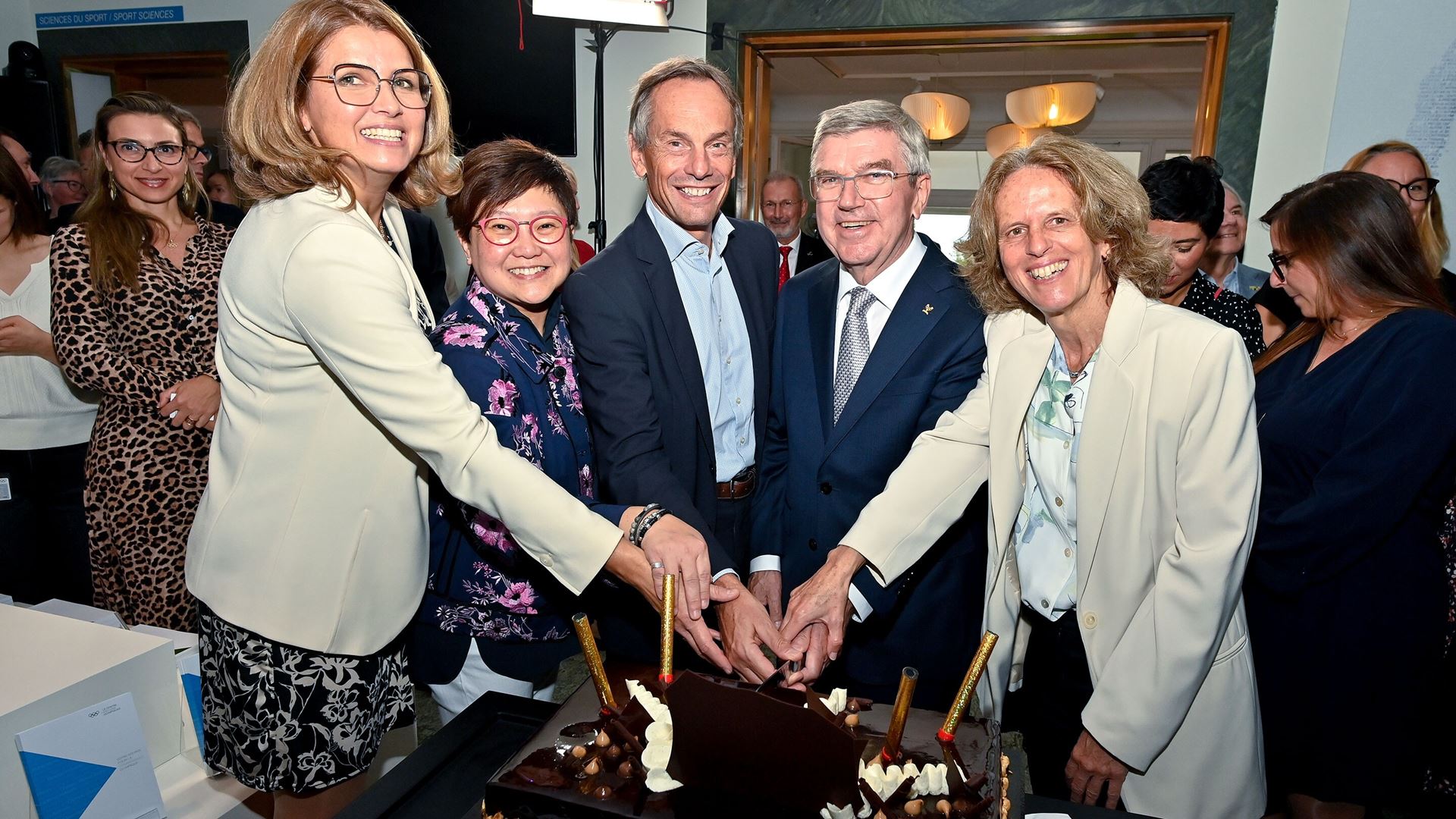07 Oct 2022 - Some 38,000 titles covering every aspect of the Olympic Games, 1,500 new titles every year, more than 11,500 documents accessible in electronic format – the Olympic Studies Centre (OSC) holds a wealth of Olympic knowledge and is the bridge between the Olympic Movement and the academic world. Since its founding in 1982, it has evolved from a small library to a global resource centre, which was consulted by over 400,000 people from more than 200 countries in 2021 alone.
Highlights of the OSC include rare documents such as the first-ever candidature file for hosting the Olympic Games – Antwerp 1920 – and the original letter from Pierre de Coubertin that includes his first drawing of the concept of the Olympic rings. This week, the OSC celebrated its 40th anniversary in the presence of IOC President Thomas Bach and several eminent scholars from around the world.
Through varied projects and resources such as the online Olympic World Library, digitisation of thousands of Olympic-related publications, research grant programmes and the creation of its reference collection, the OSC promotes an active and engaging dialogue around Olympism.
The IOC President said: “Pierre de Coubertin’s vision of the modern Olympic Movement included the concept of a centre for Olympic studies. He believed this was integral to preserving the progress of the Olympic Movement and to keeping it from false paths.
“When the IOC created the OSC, its ambition was to raise awareness of the essence, universality and permanence of the Olympic Movement and to support its educational mission. Today, it is the true home of Olympic knowledge, and by continuing to create new knowledge, it is in the best position to spread the Olympic values and promote Olympic education.”
The OSC collects and shares accurate and relevant information and knowledge about the Olympic Games, and facilitates research, education and studies on all historical, cultural and social aspects of the Olympic Movement. Its unique collections feature rare documents such as a report on the first-ever Olympic Congress in 1894, official publications of all past Olympic Games dating back to Athens 1896, but also the most up-to-date official and academic knowledge on future Games.
In addition to the thousands of titles accessible in the library housed in Lausanne, Switzerland, more than 11,500 documents are also accessible in electronic format in the Olympic World Library, the number-one resource for Olympic knowledge,
“The Olympic Studies Centre’s development over the last 40 years has been incredible,” said Angelita Teo, Director of the Olympic Foundation for Culture and Heritage. “Today it is a well-recognised and trusted resource centre that can be accessed either in person or online. The OSC has a crucial role to play in the overarching cultural and educational mission of the IOC.”
Around 1,500 new titles are added to the library collection every year, expanding the pool of knowledge and supporting the work of all stakeholders of the Olympic Movement, including the IOC administration, Organising Committees for the Olympic Games, National Olympic Committees, International Sports Federations, journalists, professors, researchers and students.
“Our mission is to ensure that Olympic knowledge is permanently enriched and made accessible,” said Maria Bogner, Head of the Olympic Studies Centre. “We try to stimulate intellectual debate related to Olympism by collaborating with an international network of academics and universities, and we offer a platform for exchange between the academic world and the Olympic Movement. For this we host regular lecture sessions, offer tailored research services and also fund Olympic-related research via our two research grant programmes.”
More than 300 researchers from all five continents have benefitted from the OSC’s research grant programmes over the years: the Advanced Olympic Research Grant Programme (for established researchers) and the PhD Students and Early Career Academics Research Grant Programme. The academic network has also expanded over the decades, with a growing number of university-based Olympic Studies and Research Centres (OSRCs) that promote teaching, research, publications and conferences about the Olympic Movement and the Olympic Games. Currently, the network of academic OSRCs includes 54 centres in 23 countries.
The Olympic Studies Centre is part of the Olympic Foundation for Culture and Heritage, which drives the IOC’s cultural and educational activities.

